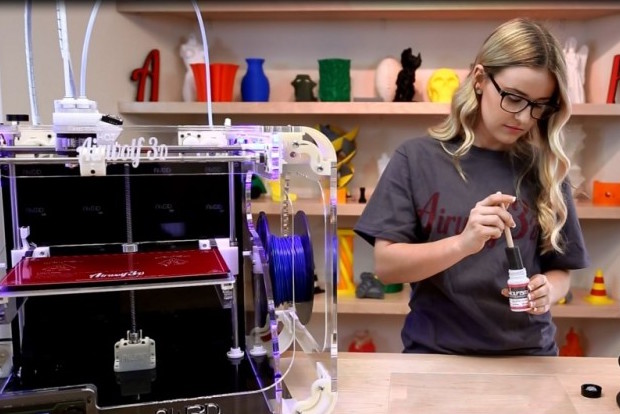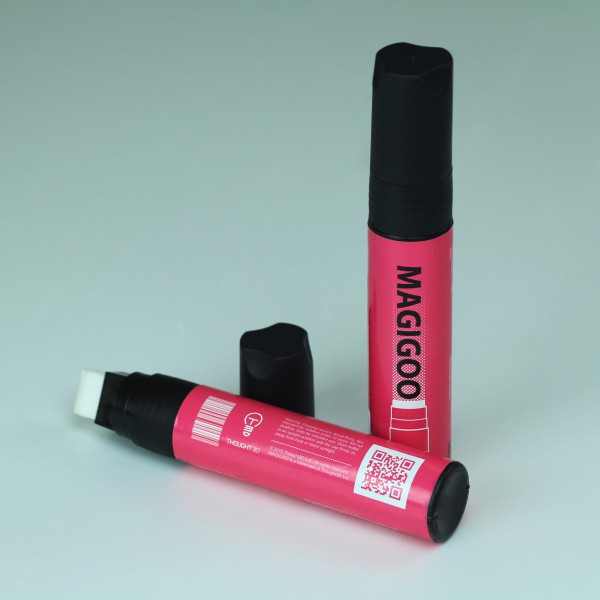
The eternal problem of extrusion-based desktop 3D printers is bed adhesion. Here are two commercial solutions specifically designed for that purpose.
Ensuring that a print sticks during printing is obviously essential, and even critical. Critical because it’s possible to severely damage your 3D printer should a print become loose: it might be dragged around the printer by the moving print head and get entangled in the mechanical components. I’ve had this happen more than once. So, adhesion is essential.
Early methods of adhesion involved using bare acrylic surfaces, or blue painter’s or kapton tape, but these were not optimal. Inventive operators developed techniques using certain hair sprays, or liquid concoctions of ABS plastic and acetone. I’ve even heard of success using dried mixtures of sugar and water on glass beds.
But if experimentation is not your forte and you desire a store-bought solution, there are options for you to consider.
One class of solutions involves replacing or overlaying your print bed with an entirely new surface, but sometimes that’s not easy to do. If that’s the case, then you may want a liquid adhesion solution.
One is WolfBite, an adhesion solution from Airwolf3D. It’s a liquid solution that is directly applied to a cold glass print bed by painting. WolfBite is able to lock not only ABS plastic, but also PETG, TPU, and TPE securely to the print bed.
It’s sold in small 60ml bottles that are said to be sufficient for up to 100 uses. At about USD$20 per bottle, that’s USD$0.20 per print, affordable by anyone.
One issue is that WolfBite is not suitable for PLA plastic adhesion. To solve that chemical problem, Airwolf3D offers an alternate product, WolfBite Nano, that’s specifically designed for PLA adhesion. It’s available at the same price, and it seems they have some kind of two-for-one deal ongoing.

Another option is to use Magigoo from Thought3D. The Malta-based startup company provides an adhesion solution that works with both PLA and ABS. Like many other liquid solutions, it must be dried before use.
But Magigoo has some interesting properties. It is heat sensitive in that when the print cools, the adhesion ceases. This overcomes the “it’s too stuck to remove!” problem that many other adhesion solutions have. It’s also environmentally friendly, which permits you to clean it up with mere water.
Magigoo is sold in “pen” form at €15 (USD$17). I’m not sure how many prints are in a single pen, but it’s no doubt a lot and your cost per print is going to be very inexpensive.
For those seeking reliable adhesion solutions, the liquid approach is possibly one of the cheapest. However, there’s one concern: always ensure the chemistry of the adhesion solution matches the plastics you intend to print, as it is probably not optimal to be washing and re-applying liquids to your print surface.

